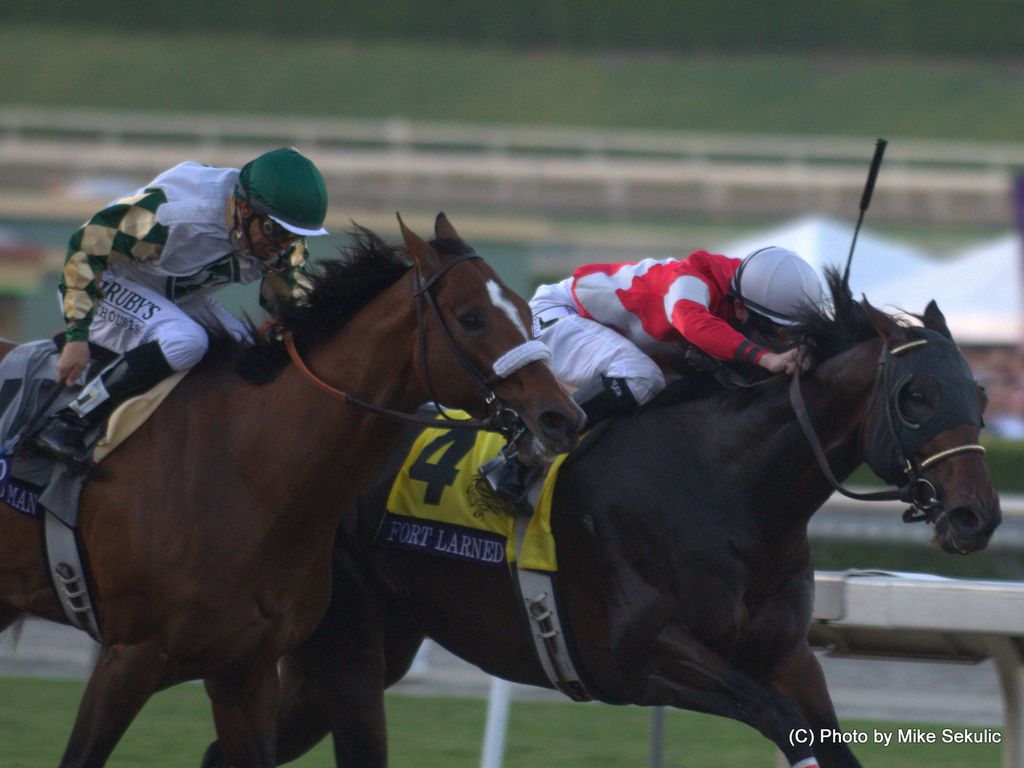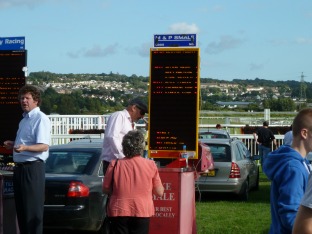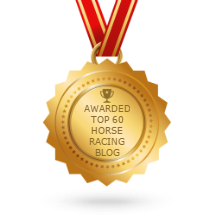Finding Value In Horse Racing Odds
Your guide to finding value in horse racing odds that are profitable over time.
 Fighting out the finish at the Breeders Cup 2012
Fighting out the finish at the Breeders Cup 2012Introduction
Horse racing enthusiasts often find themselves on a quest to discover the holy grail of profitable betting. In a world where uncertainty reigns supreme, understanding how to decipher the art of finding value in horse racing odds and develop a strategy for consistent success becomes crucial.
In this friendly and familiar guide, we'll delve into the nuances of finding profitable odds over time, emphasizing practical tips and examples to illuminate key concepts.
Choosing the Right Bookmakers
Before delving into odds analysis, it's essential to establish a foundation for success. One key rule is to choose bookmakers that offer Best Odds Guaranteed (BOG). Whether you're wagering at a brick-and-mortar establishment or exploring online platforms, BOG ensures that you receive the most favourable odds, offering a safety net for your bets.
Additionally, consider taking early prices from bookies or exchanges. Prices are often at their best earlier in the day, though this isn't a universal rule. The key is to capitalize on potential value before market fluctuations occur.
 Bookmakers on course
Bookmakers on courseBack Records of Horse Racing Odds
A cornerstone of profitable betting lies in analyzing back records for specific race types. Take a trip down memory lane and scrutinize your past successes. Identify the price ranges in which you've thrived and ask yourself why. This retrospective analysis helps you understand the characteristics of races where you've been most successful.
Once you've selected your horses, it's time to assign odds based on your intuition and experience. To enhance your decision-making process, add the percentage profit you aim to make.
This exercise creates a framework for determining the necessary value for profitable selections. Regularly revisiting and updating this process will build a robust database of knowledge over time.
NB To establish a consistent strategy you can also automate your betting with BF-Bot Manager - the ultimate betting bot with a free trial period.
Finding Value in Horse Racing Odds
Systems for Consistency
If you're a fan of systems, it's crucial to ensure that the odds at which you place bets are the best available. Early prices often trump starting prices, emphasizing the importance of timing in your betting strategy.
As you gain a clearer understanding of your profitable bets, consider formalizing your approach into a systematic method. Here are some pointers for creating a system:
1. Decide on race types based on your historical data.
2. Identify horse types that are consistently profitable in these race types.
3. Verify that the assigned odds for your selections are achievable at some point during the day.
4. Integrate market odds into your evaluation to identify potential qualifiers.
Creating a system for finding potential profitable bets in flat racing involves understanding the nuances of different race types. Here are some specific flat race types that you might consider when developing your betting system:
1. Maiden Races:
- These races feature horses that have yet to win a race. Analyzing the performance of horses in maiden races can provide insights into emerging talent and potential contenders in future races.
2. Handicap Races:
- Handicap races involve assigning weights to horses based on their past performance. Look for patterns in how horses handle varying weights and identify those that consistently outperform their assigned handicap.
3. Claiming Races:
- In claiming races, horses are available for purchase. Keep an eye on horses that have recently changed ownership, as this can sometimes lead to improved performance.
4. Stakes Races:
- Stakes races are prestigious events with higher prize money. Analyze the performance of horses in these elite competitions to identify top performers and potential contenders in future stakes races.
5. Nursery Races (Two-Year-Old Races):
- Two-year-old races, also known as nursery races, showcase the youngest horses. Studying the performance of these early bloomers can reveal insights into future potential and long-term success.
6. Conditions Races:
- Conditions races are designed for specific horse criteria, such as age, gender, or previous wins. Develop a system that focuses on horses meeting specific conditions, as they may have a competitive advantage.
7. Distance Specialist Races:
- Some horses excel at certain distances. Identify horses that consistently perform well at specific distances and incorporate this information into your betting system.
8. Class 4 or Class 5 Races:
- Lower-class races can be a goldmine for identifying potential winners. These races often feature less competitive fields, providing opportunities for astute bettors.
9. All-Weather Races:
- Races held on synthetic tracks or all-weather surfaces can have different dynamics. Develop a system that takes into account the performance of horses on these surfaces.
10. Handicap Debutants:
- Keep an eye on horses making their debut in handicap races. Some horses may show significant improvement when faced with the challenge of carrying weights for the first time.
 Don't Push It Wins the Grand National Handicap Chase
Don't Push It Wins the Grand National Handicap ChaseWhen creating your system, remember to consider factors such as jockey and trainer statistics, recent form, and track conditions. Additionally, leverage technology and data analysis tools to enhance your system's effectiveness over time.
Regularly update and refine your approach based on ongoing performance evaluations and emerging trends in the racing world.
By incorporating these principles into a system, you create a framework for consistent decision-making in your everyday selection process. This systematic approach helps you apply your knowledge consistently, providing a roadmap for success.
Building a Knowledge Base
Building a knowledge base is a gradual process that involves continuous learning and adaptation. Regularly revisit your strategies, analyze past performances, and refine your approach based on emerging trends. As you accumulate data, patterns will emerge, revealing whether you are over or undervaluing the odds of your selections.
Conclusion
In the dynamic world of horse racing betting, profitability is not an elusive dream but a tangible goal achievable through strategic planning and continuous refinement. By choosing the right bookmakers, analyzing back records, and incorporating systematic approaches, you pave the way for consistent success.
Remember, building a knowledge base takes time, but with dedication and the right tools, you can unlock the secrets to profitable horse racing betting.
Back to Betting Management from Finding Value In Horse Racing Odds
The Popular Daily Lay Tips UK/IRE £5 per month
Subscribe Below
French Lay Racing Tips for £5 per month
Subscribe below


Returns Policy: Once a customer has agreed to pay for a product or service no returns will be permitted or payments returned.
All PayPal transactions are subject to the PayPal Privacy Policy
Privacy Policy: Personal details provided to this site by an individual may be shared with third parties unless requested otherwise.
Above policies updated 15 March 2018




